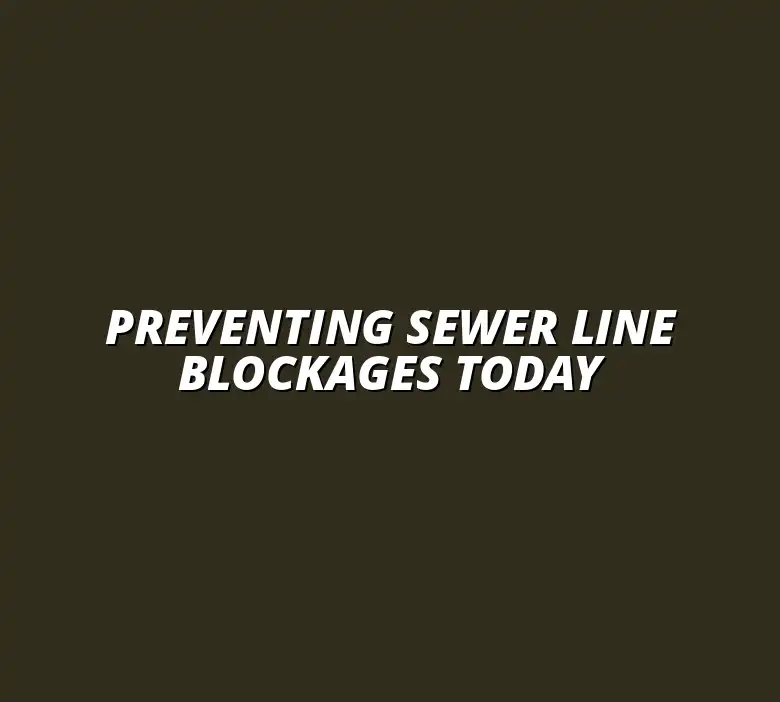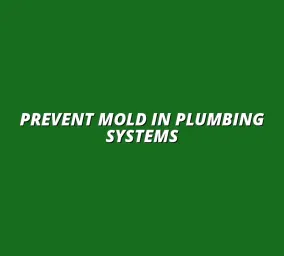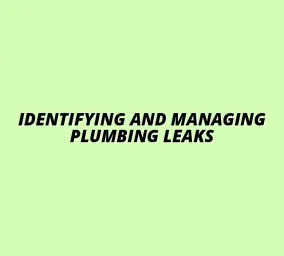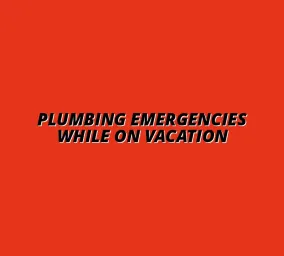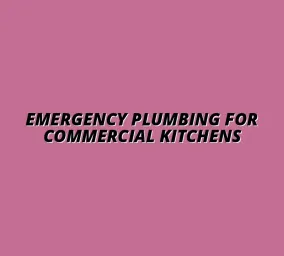Preventing Sewer Line Blockages Today
Understanding Sewer Line Blockages and Their Causes
Sewer line blockages can be a real headache for homeowners. They occur when the pipes that carry waste and water away from your home become obstructed, leading to potential backups and issues in your plumbing system. Understanding how these blockages happen and their impact is crucial for maintaining a healthy home environment!
For many homeowners, a blocked sewer line can mean costly repairs and unpleasant messes. When the sewer lines are blocked, it can lead to slow drains, foul odors, and even sewage backups in your home. Recognizing the causes can help you take preventive measures to avoid these problems. For example, regularly checking for and addressing essential benefits of regular drain cleaning can significantly reduce the risk of blockages.
Defining Sewer Line Blockages and Their Impact on Homeowners
A sewer line blockage occurs when the flow of waste and water is restricted within the pipes. This can happen for various reasons, and the impact on homeowners can be significant. From minor inconveniences like slow drains to severe situations like flooding or backups, the consequences can affect your daily life.
Moreover, when blockages occur, they can lead to larger plumbing issues, and resolving these can result in unexpected expenses. Homeowners should be vigilant and proactive in identifying signs of blockages to mitigate damage and repair costs! Regular maintenance, such as those outlined in plumbing maintenance tips for homeowners, can help prevent many issues.
Common Causes of Sewer Line Blockages
Several common factors can lead to sewer line blockages. Understanding these causes can empower homeowners to take the right actions to prevent them. Let's explore some of the most frequent culprits:
- Debris Accumulation
- Roots Intrusion
- Grease Buildup
- Foreign Objects
Debris Accumulation and Its Role in Blockages
Debris accumulation is one of the leading causes of sewer line blockages. Over time, materials like hair, soap residue, and other waste can gather within the pipes. This buildup can restrict the flow of water and lead to more severe blockages if not addressed.
Regular maintenance can help reduce debris accumulation. Simple actions like using drain covers can prevent debris from entering the sewer system in the first place!
Roots Intrusion: How Tree Roots Affect Sewer Lines
Tree roots can be a silent yet persistent enemy of sewer lines. As trees grow, their roots seek out water, often invading sewer lines through tiny cracks or joints. This can lead to significant blockages and damage to the pipes.
To mitigate this issue, it's essential to plant trees away from sewer lines and regularly inspect your plumbing. Understanding the risks can help protect your sewer system from root intrusion! For tips on maintaining a healthy bathroom sewer line, check out these healthy bathroom sewer line tips.
Grease Buildup: Identifying the Kitchen Culprit
Grease buildup is a common problem in many households, especially in the kitchen. When fats and oils are washed down the sink, they can solidify in the pipes, creating blockages over time. This can lead to unpleasant odors and slow drainage.
To combat grease buildup, always dispose of cooking oils and fats properly. By following good disposal practices, you can help maintain a healthy sewer line!
Foreign Objects: Household Items That Cause Blockages
Many homeowners may not realize that foreign objects can lead to serious sewer line blockages. Items such as wipes, sanitary products, and even small toys can find their way into the plumbing system and cause significant obstruction.
Being mindful of what goes down the drain is crucial. Implementing proper waste disposal techniques can save homeowners from potential plumbing nightmares! Preventing hard water damage is also crucial for maintaining your pipes. See these helpful tips on preventing hard water damage.
Frequently Asked Questions about Sewer Line Maintenance
What Should I Do If I Suspect a Blockage?
If you think there’s a blockage in your sewer line, it’s important to act quickly. First, avoid flushing any additional toilets or drains to prevent worsening the situation. Then, try to identify any specific signs, such as slow drains or unusual sounds from your plumbing.
Next, you can take some initial steps before calling a plumber. Here’s what you can do:
- Check for visible signs of backup in sinks or bathtubs.
- Use a plunger on affected drains to see if it clears the blockage.
- Pour hot water down the drain to help break down grease and debris.
- Inspect your property for any wet spots or foul odors, which can indicate a sewer issue.
If the problem persists, it’s best to call a professional plumber. For plumbing emergencies in Brandwood End, Birmingham, consider contacting a plumber in Brandwood End, Birmingham. They have the tools and expertise to diagnose and resolve sewer line blockages effectively.
How Often Should I Have My Sewer Lines Inspected?
The frequency of sewer line inspections can vary depending on a few factors. Generally, it’s recommended to have your sewer lines checked at least once every two years. However, certain conditions may require more frequent inspections.
Consider these factors that can influence how often you should schedule inspections:
- Age of your home: Older homes may have more wear and tear.
- Previous sewer issues: If you’ve had blockages before, more frequent checks may be necessary.
- Tree roots in proximity: Trees near your sewer lines can lead to root intrusions.
- Type of plumbing materials: Certain materials may degrade faster than others.
Staying proactive with inspections can help catch any issues early on, saving you time and money in the long run. Efficient water heater maintenance is also important for overall home plumbing health. Check out these tips on maintaining your water heater efficiently.
Final Thoughts on Maintaining Healthy Sewer Lines
Benefits of Regular Maintenance for Homeowners
Maintaining your sewer lines isn’t just about avoiding blockages; it offers numerous benefits for homeowners. Regular maintenance can lead to a more efficient plumbing system, reducing the likelihood of emergencies and unexpected costs. Plus, keeping your sewer lines in good shape can enhance your home’s overall appeal.
Here are some key benefits of consistent sewer line maintenance:
- Increased lifespan of your plumbing system.
- Improved home comfort and hygiene.
- Minimized risk of costly repairs in the future.
- Peace of mind knowing that everything is functioning properly.
Regular maintenance is a smart investment that pays off in many ways! Preventing frozen pipes is also a critical aspect of winter plumbing maintenance. Learn how to prevent frozen pipes this winter.
Encouraging a Proactive Approach to Sewer Line Management
Being proactive about sewer line management can save you headaches down the road. It’s crucial to build awareness of the potential issues and to take action before they escalate. Simple steps, like routine inspections and proper waste disposal, can make a big difference.
To help maintain your sewer lines effectively, consider these actions:
- Educate your family about what should and shouldn’t go down the drain.
- Schedule regular inspections with a trusted plumber.
- Invest in drain filters to catch debris before it enters the plumbing system.
- Keep a log of maintenance activities and any issues encountered.
Staying informed and taking action will help you avoid future sewer line issues, keeping your home running smoothly!

